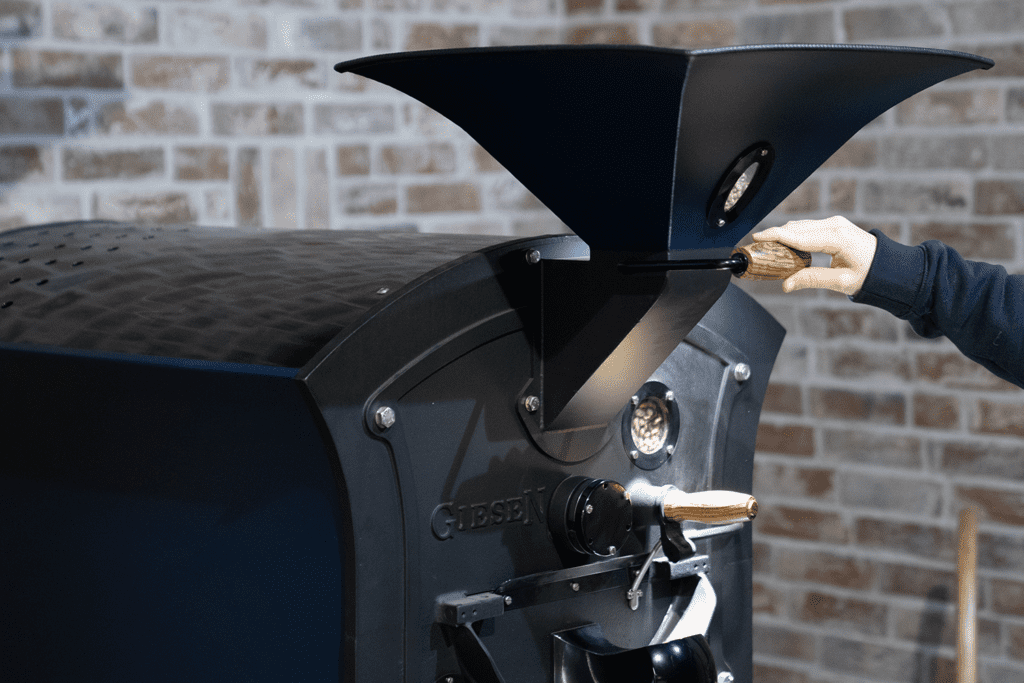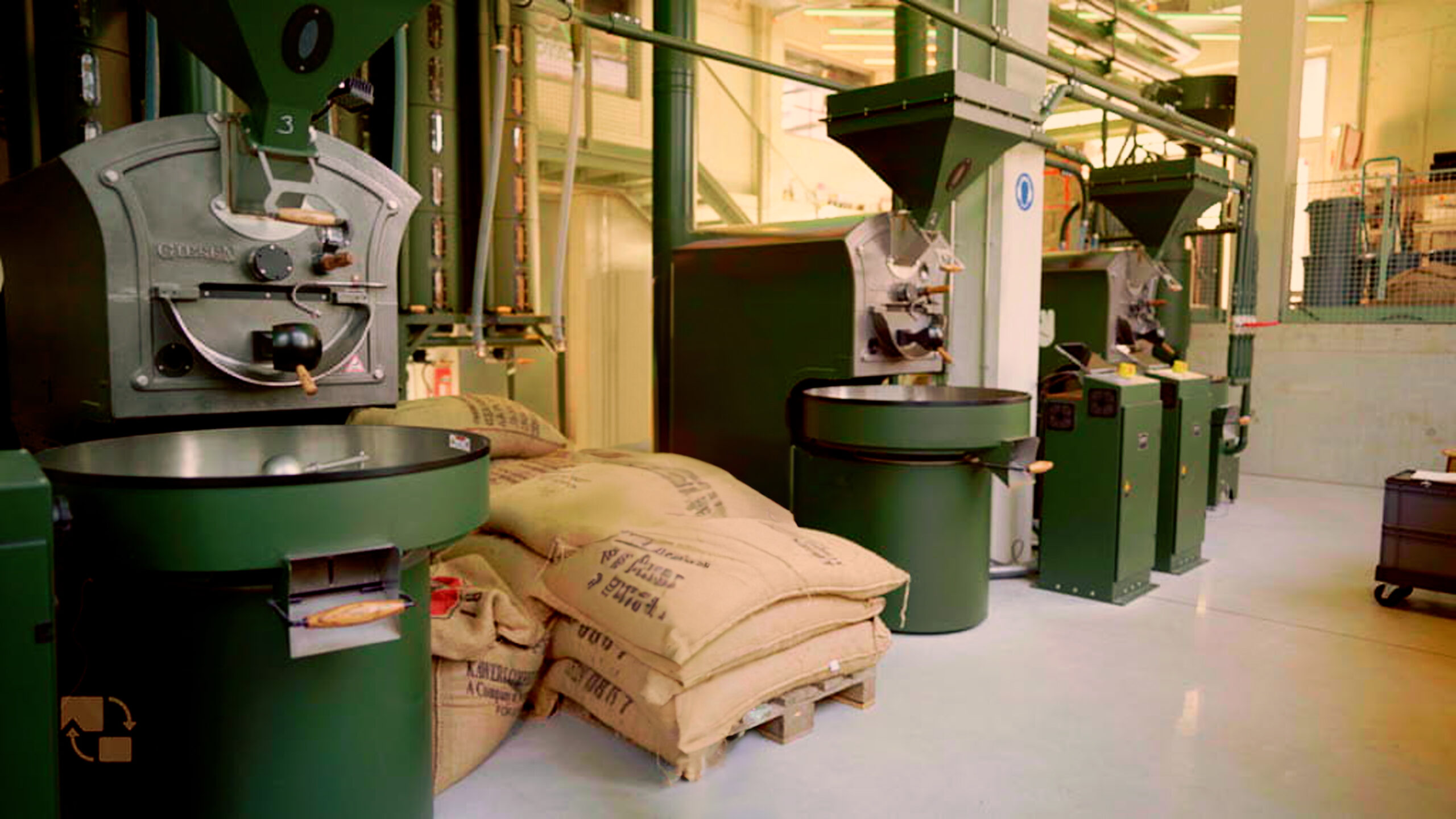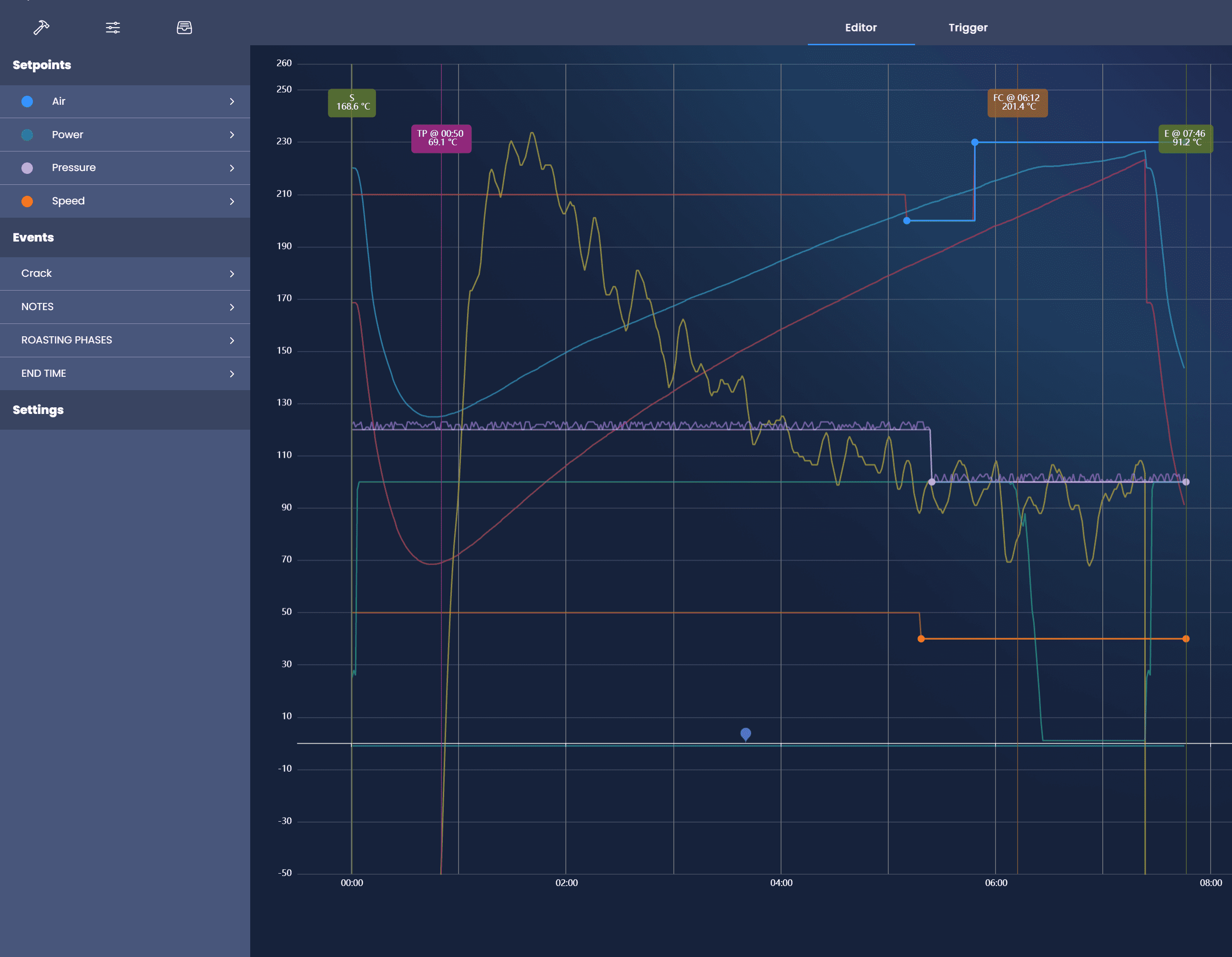Everyone drinks coffee, this is a moment of peace, an energy boost or simply to connect with someone. But who are the people roasting your coffee? You’re listening to the Giesen Roastcast, where we talk about everything that has to do with roasting and your business in the coffee industry. Cisca roasted coffee year in, year out for over half a decade. With her own coffee roastery and as an ambassador of Giesen Coffee Roasters, she wants to show you what it means to roast coffee for a living. So grab a cup of coffee, sit back and relax. This is the Giesen Roastcast.
In this episode of the Roastcast, Cisca talks to Daniel Humphries. Daniel not only sees potential in single origins, but also loves to work with blends. He believes that blends aren’t meant to hide bad characteristics of coffee. If you only use good coffee that can complement each other, you can create something that has not been created before. Cisca discusses this topic with him, and much more!
You can also listen to the episode here:
Summary Roastcast 6 – Daniel Humphries
Cisca: ‘Daniel, I am looking forward to our podcast because I read you had a very strong opinion about coffee blends. You wrote: ‘There seems to be an assumption that coffee with a single origin is always naturally better than coffee blends. The result to be fair is that you often get very aggressive almost undrinkable coffees in specialty shops from a barista who insists on giving you a special experience.‘ That’s quite a statement.’
Daniel: ‘I don’t want to be controversial, but I don’t think it will be in another 5 years because I think I am right.’
Cisca: ‘Is it important for you that other roasters have the same opinion?
Daniel: ‘No definitely not. I appreciate that there are many different styles and thoughts about it. I mean, I’ve been involved with roasters, baristas, and green buyers all over the world. And you can find so many different styles and this is one of the beautiful things about coffee.’
Cisca: ‘I always feel like, if you have 5 or 6 roasters and you give us the same coffee, we can all get different results out of it. And after you roasted it, it’s all out of our hands. Our customers decide whether they like it or they don’t.
Daniel: ‘That’s totally right. And to bring it back to the statement you quoted at the beginning. If you are doing single origin, you’re reflecting one particular flavor, and you’re not hiding anything. You’re giving them the ascent. And I love that too. We have single-origin coffee at Coffee and Coconuts. But just because single-origin shines like that, does not mean that blend are the opposite of that. If we only use good coffee that get to complement each other, you can create something that has not been created before. So everybody who has limited himself to only blends is missing out on the uniqueness of single origins. And I think that is a mistake. But anybody who only does single-origin and refuses to do blends is missing out too.
The statement about baristas trying to give the customer a unique challenge or something, that applies to not only the origins but also blends. In my experience, most customers do not want to get a slap in the mouth when they take a sip of coffee. They want to have a pleasant experience, and I do think that there are at least 2 different sets of customers that a lot of people have. One is their paying customers and the other is the press at a barista competition or other roasters. And any time you are paying more attention to the second group, instead of the first, I think you are doing it wrong. You’re risking going out of business.’
Coffee from Bali
Cisca: ‘Can you tell a little bit more about how you started at head roaster at the Coffee and Coconut team?’
Daniel: ‘I have been in coffee for a long time. About 14 years now. A view year back I took a break from coffee. I got a little burned out. After a few months’ break, I got a message from a friend. He knew these guys from Amsterdam, who are just amazing people, and they reached out to him about opening a business in Bali. Coffee and Coconuts is open for 7 years now and it’s kind of an institution in Amsterdam. They thought, maybe they could do something in Bali. They messaged me and asked if I liked to do a coffee roastery in Bali with them. That’s how it started. We did that project about 3 years back, and we had a lot of fun. It was quite a learning process. It didn’t take the final shape we wanted but that’s okay. Because something else grew out of it. And we were like, well that went so well why don’t we take that to Amsterdam. So, they sacrificed some of their seat areas to make place for the roastery. We already had nice coffee but wanted to do it ourselves. So, I ended up in Amsterdam.’
Cisca: ‘You are also importing coffee from Bali right?’
Daniel: ‘Yes, it’s a direct import of coffee from Bali. I know a lot of roasters want to do this. It was kind of cool because the very first coffee we brought into the Netherlands, was the true kind of direct trade. Because she never sold coffee to Europe before. So they had to learn from scratch and we did too.’
Cisca: ‘Coffee from Bali is unknown right?’
Daniel: ‘Yes, in my experience it is. I didn’t realize how silly it was that I didn’t know Bali coffee. Because if you think about it, it’s in between all of these world-famous coffee countries.
One of the challenges they have in Bali is the fact that land value in Bali is really high. Especially for a developing country in Indonesia. Because people can buy that land and make something for tourists and earn a lot more money than before. So, one thing that we need for Bali coffee is to pay specialty prices.’
Cisca: ‘I think that is a general problem in specialty coffee. We must keep paying the right price for farmers. Because otherwise, they stop making coffee. We have to make sure that we pay a good price.
Cisca: ‘What inspired you in creating profiles or blends? I always want to add new coffees. I always look at which coffees I haven’t had yet. What inspires you?’
Daniel: ‘I have this impulse that I want one of these, one of those, one of these coffees. But of course, you have to control this impulse. Otherwise, you end up with 40 different coffees. So, you have to make hard decisions. You want each coffee to be there for a good reason. My priority is to have one amazing product you absolutely believe in, that we can center everything else around. At Coffee and Coconuts, that’s our special blend, Ayo.’
Impressing the customers
Daniel: ‘One of the things I learned is that impressing my customers is a hundred times more important than impressing a super knowledgeable coffee person. And by the way, it’s not one thing or another, you can hit both at the same time. When the coffee professional is really impressed with you and your customers are.
I always think like , what do people do when they don’t like the coffee? They add sugar or cream. Sugar gives it sweetness, cream gives it a soft, creamy mouthfeel. So, you should always try to get that from your coffee. Or at least the core products if you really want to please people. And if you don’t want to please people, then you should probably not have a professional business.’
Cisca: ‘Yes or see roasting as a hobby. I don’t like the places where you don’t have cream or sugar because your customers are not allowed to use it. That is something so arrogant. Because you are trying to determine which flavors your customers have to like. So basically, you’re saying that you decide how people should taste and drink their coffee.
Do you think there is a difference between the world of coffee, our profession versus the real world, the customers?’
Daniel: ‘I don’t think there is a line. I don’t think anything in life is that simple. But there are trends where we see a lack of communication between the coffee professionals on one side and the average customer on the other side. I do think there is a lack of communication and understanding. And I think the one word that you said, that is key to this: arrogance. That is the key. Because there is a role for us as coffee professionals. We do usually know more about coffee and you should share your knowledge. So I’m not saying just leave everything the way it is. We should try to push things. But it’s got to be done with love, with humanity.’




